27 May 2019
Interview
INDISCIPLINARY SYMPHONIES AND POETRY FOR LEARNING
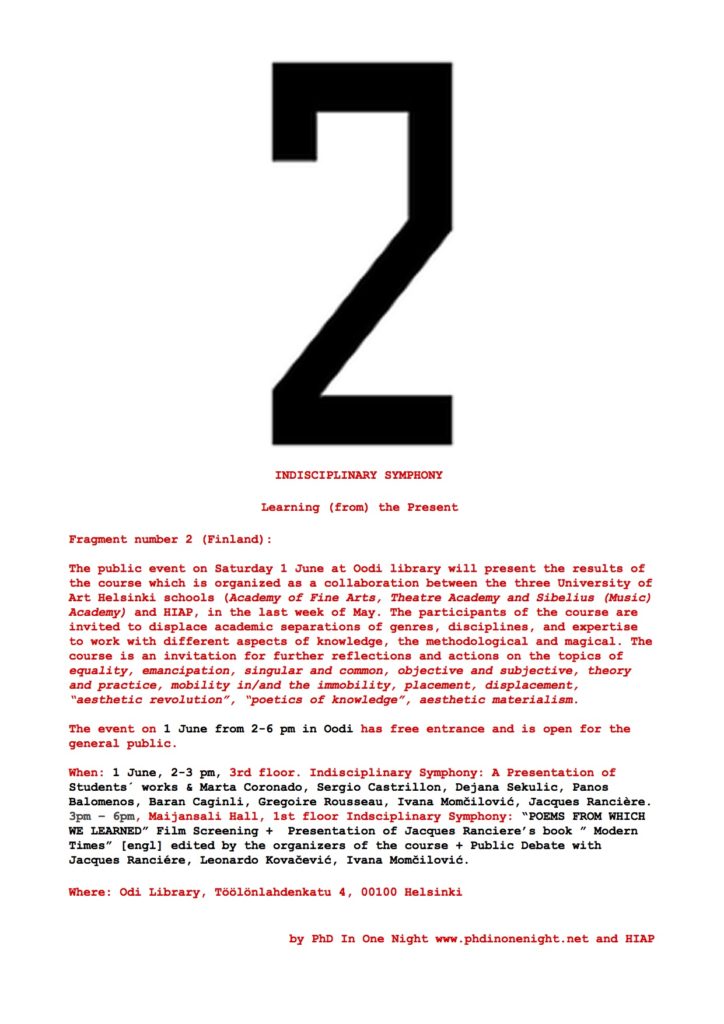
Ivana Momčilović is a dramaturge, poet, researcher, translator and editor based in Brussels, who works on displacement of philosophy and aesthetic in other spheres of everyday life. She is originally from Yugoslavia. She left Yugoslavia when the war started, and while she had been an active playwright before the war, she decided not to produce any more art at the time, as “the reality of war surpassed any fiction she could imagine.”
Once in exile in Belgium, she worked for several years on projects combining theory of emancipation and politics. She searched for and worked with uncredited, undocumented groups, such as striking metal workers (steel factory Clabecq) and car industry workers (Renault), who were accused of terrorism for fighting for their rights. She slowly realised that it is art that produces knowledge needed to change social patterns of behaviour. During that time, Ivana also had a son and realised that in Belgium there is no musical or arts education in schools, nor are the children taught philosophy. She describes her thinking during that time: “I slowly realised that market and expertise related education, not only in Belgium but generally speaking, does not share or produce anymore useless and inefficacious knowledge”.
During these years Ivana first became acquainted with the work of two major thinkers of emancipation, Alain Badiou and Jacques Rancière, who after some time came to Brussels for an experimental public debate that Ivana organised (In the folders of Presents). Their work on emancipation and equality later majorly influenced her thinking and that of her artist peers.
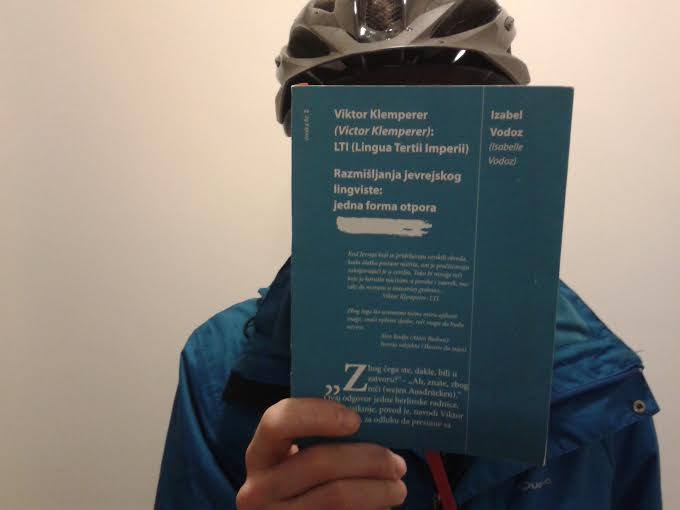
PhD In One Night and Edicija Jugoslavija self-managed book publishing initiative
Eventually, Ivana started working with other like-minded people in a collective that later came to be known as PhD In One Night. The collective emerged after Ivana’s engagement with another collective called El-Migrative art in Belgium, which consisted of many artist members from the former socialist country of Yugoslavia, which was by then in a state of war. The collective claimed that the impossible gathering between citizens of the former federation in the extra-territory of Belgium, is the ultimate art work, and it actively involved artists whose ideas regarding society were overpassing the structures they had to get used to in Belgium. Together they began considering the role of art and artists in the transformation of society and in education.
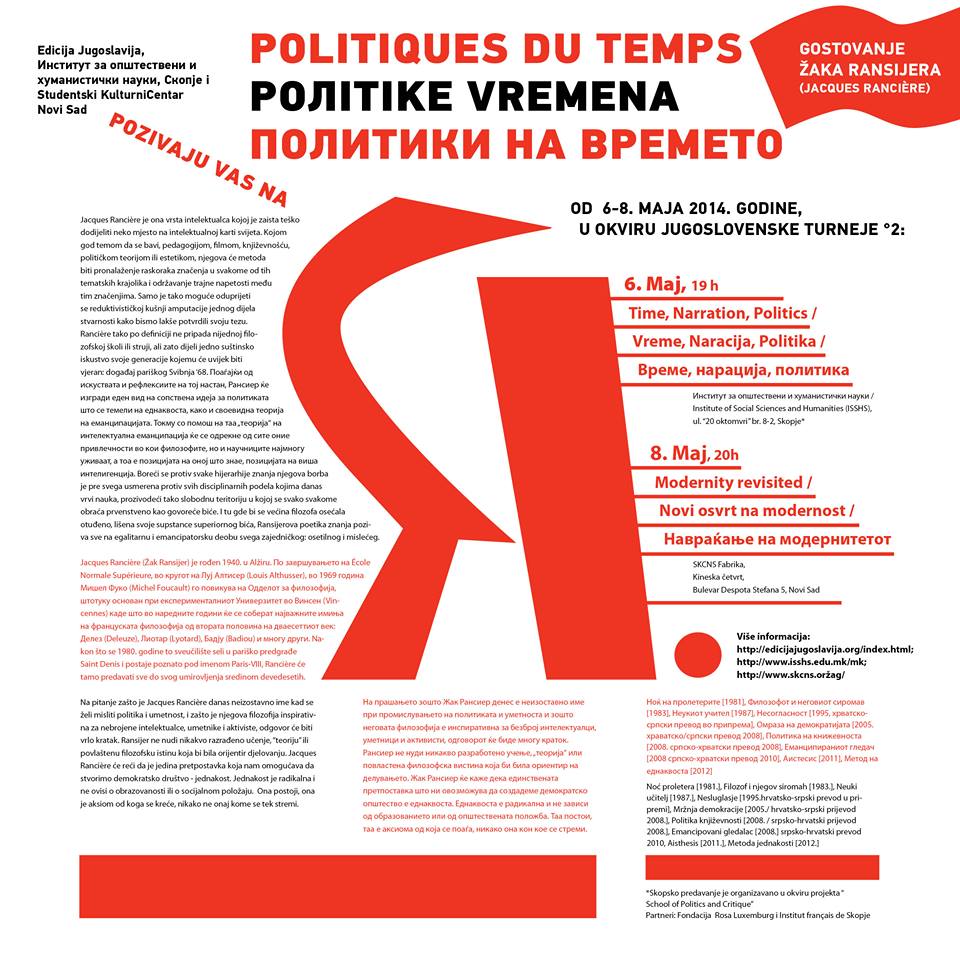
For years the two collectives worked with no funding or resources, publishing books and putting on events. The books they made during those early years through their publishing initiative Edicija Jugoslavija combined translations of published thinkers such as Badiou and Rancière with new forms of visual and textual experiences. All the books promoted equality. For example, one publication featured an original text by Badiou while also doubling up as a notebook, highlighting the fact that “anyone equally deserves to be in the same line of equality,” in the same book with Badiou. Another book, called Farewell to the Political Parties, states its cost at “0 euro but 9084 hours of human labour,” and includes interviews with people who do not believe in political parties yet want to find new ways to transform society. Most of the publications are free, some have an asking price of one or two euros.
Some of the books published by the collective, Ivana says, took a long time to make, sometimes even years, and their focus was always in the process, not the finished object. The primary function of the publications lies somewhere in between aesthetics and political and poetical rethinking of new forms of sharing.
PhD In One Night has now been active for eleven years during which the collective has continued to highlight the impossible connections between theory and the aesthetics and forms of static objects and forms of sharing. In their practice of combining aesthetics and the political, PhD In One Night discovered a real tool for the subjectification of knowledge.
Art as a tool: alphabetisation of refugees through contemporary dance
The collective, including those members without children, were unanimous in thinking that the current state of school education is problematic and often even promoting failure. All of the members were also trying to discover how they could use their art for the transformation of society. They all wanted not only to perform art, but to perform and create something new, to reconnect with their practice. After researching new ways of sharing knowledge for a long time, the collective came to realise that aesthetic education and art is in itself a new language. That language can be used as a means of sharing knowledge not on art, but through art, towards other indisciplines and knowledge.
This new language took the form of combined classes. A variety of artists were involved in the realisation of these indisciplinary lessons: a violinist, contemporary dancers and filmmakers, dramaturges and visual artists. All these artists combined their expertise within their own fields, in order to create processes of art research through teaching and learning.
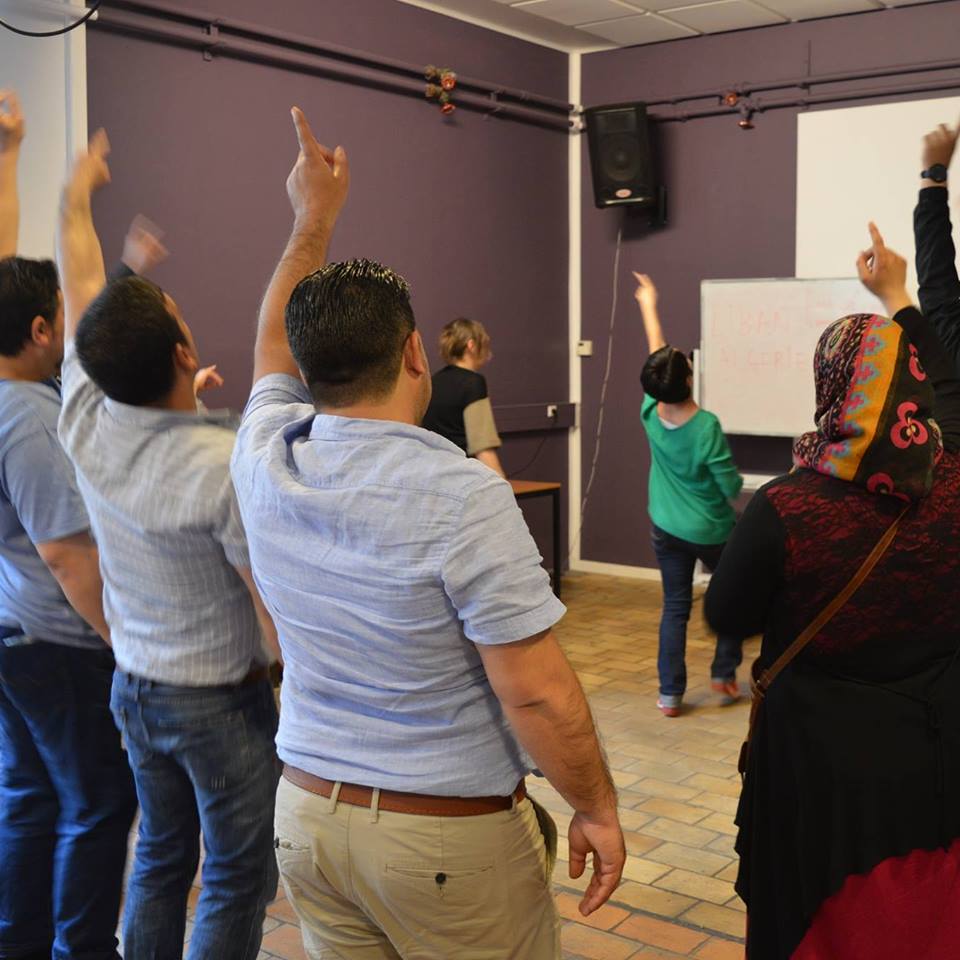
One extremely successful project combined contemporary dance with language lessons for refugees. This alphabetisation project taught a group of Syrian and Afghan women and men how to make the letters of the alphabet with their body, teaching them language and dance at the same time. The initiators were at first a little worried, thinking that a mixed group might result in women not participating. They were however wrong; everyone participated, and nobody held back. All the participants were extremely happy to be taught language respectfully; the language they were taught included words such as sky, and poetry, which in most classes for refugees would have been deemed useless.
Indisciplinary symphony in Finnish schools
From the start, the collective thought it necessary to work with school pupils. In Belgium, it was extremely difficult to work with and within schools. “In Belgium the administrative processes required to enter the Ideological State Apparatus named School are very difficult,” Ivana explains. Finland is one of the few countries where musical education and philosophy are still taught in schools extensively, and the educational system is conceived as a real research process, so the collaborations were much easier to initiate. Ivana continues: “The latest reform on ‘phenomena teaching’ opens in Finland new spaces of creativity, inviting teachers to create a new type of courses and to become artists themselves. Such was the case with the great teacher of Finnish language with whom I worked at the Sport High School in Helsinki, Tiina Salmi.”
Finnish schools were very interested to employ artists based on previous interventions by PhD In One Night: interventions in French classes through surrealist collages in Belgium, aesthetic education and classical music work with refugees in Serbia, and mathematics classes and geometry through contemporary dance in Croatia.
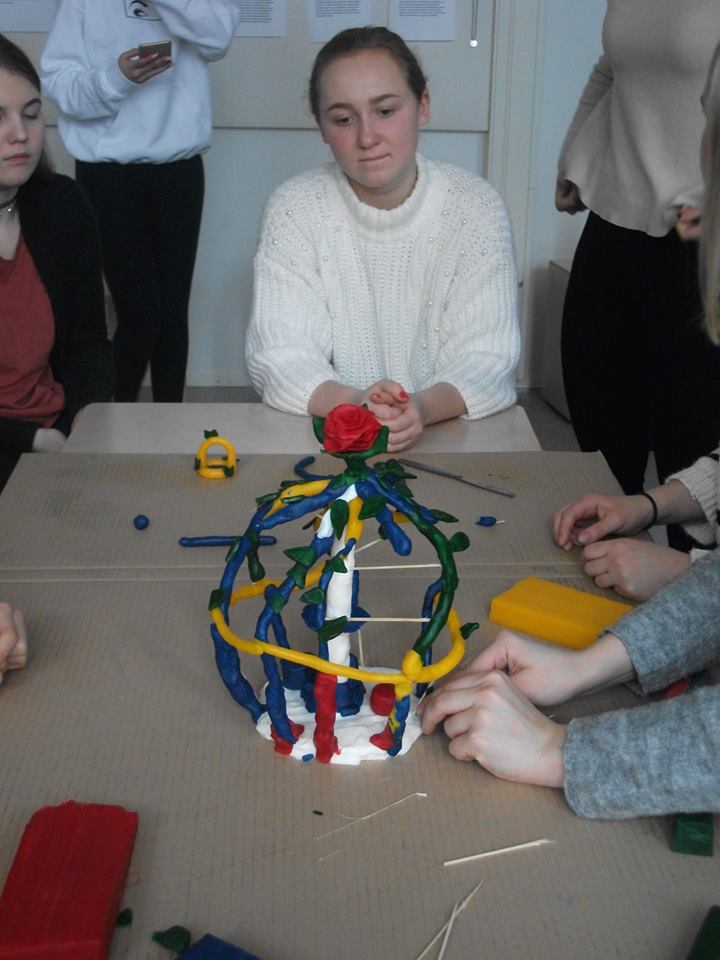
One particularly interesting lesson was a course on drama and the Finnish language through sculpture at the Sport High School in Helsinki. During this intervention, Ivana and Finnish sculptor Anni Laakso combined sharing the one-act play The Lesson by playwright Eugène Ionesco with making a sculpture, the form of which was chosen by the students. Ivana explains further: “The pupils chose the form of the sculpture and realised it as set design, where they enacted their later drama improvisations.” The students were very responsive and active and created a sculpture within one session, showcasing what Ivana calls “collective intelligence.” According to Ivana (and also Jacques Rancière, who speaks of indisciplinarity and has been a great influence on Ivana’s thinking), all intelligence is equal. “Of course, that is not to say that everyone has the same goal and will end in the same realisations and activities, but everyone has capacities and intuition for their own singular form of life as discovery and creation,” Ivana says.
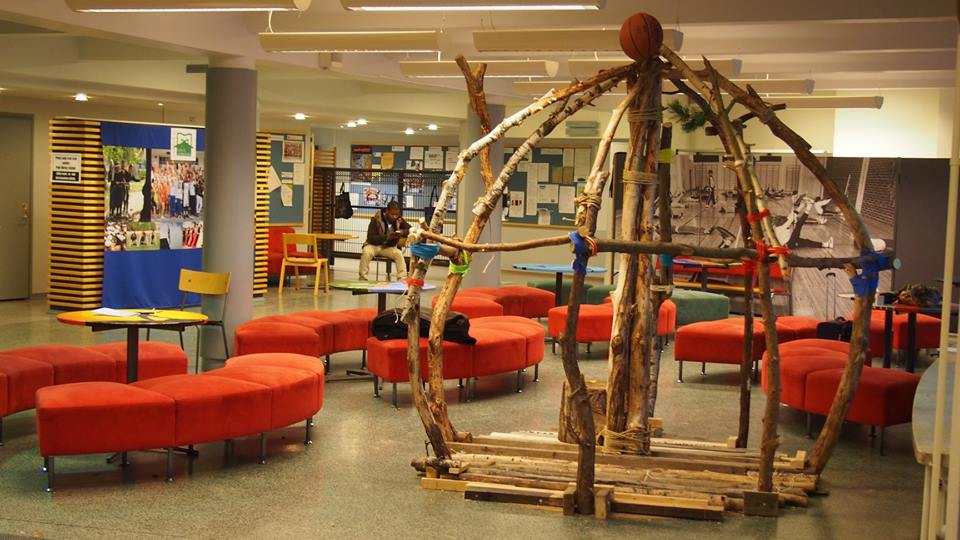
Ivana has collaborated with Gregoire Rousseau, engineer, visual artist and educator, on several indisciplinary interventions. Intervention on Equality and Aesthetics of Knowledge, a three-week course at the Academy of Fine Arts in Helsinki in 2016 was followed by a public gathering which took place at HIAP Suomenlinna with the participants of the course and a group of researchers working with philosopher Jacques Rancière’s thesis on equality. Jacques Rancière himself joined the group for a Polyphonic Discussion which took place at HIAP’s Gallery Augusta.
Ivana also worked with Gregoire Rousseau on a course at the Sport High School Helsinki, combining sound and fiction. One such intervention, for example, combines Gregoire’s electronic sounds archives with visual arts and a text on sound by Nicola Tesla. Another lesson combined a text by Jacques Rancière on fiction with electronic music.
New combinations and ideas develop constantly, Finnish schools have been in general very enthusiastic, and Ivana and her colleagues are finding a way to face administrative limits even in Finland, finding it very inspiring that the Finnish school reform allows schools to function as open process spaces of collective and individual thinking. Ivana Momčilović the PhD In One Night collective will continue working on art projects that are based on collective intelligence and searching for impossible connections.
Recent developments
The public event on Saturday 1 June at Oodi library will present the results of the indisciplinary course Indisciplinary Symphony/ Learning (from) the present that Ivana and her colleagues organised as a collaboration between the three University of the Arts Helsinki schools (Academy of Fine Arts, Theatre Academy and Sibelius Academy) and HIAP, in the last week of May. The participants of the course are invited to displace academic separations of genres, disciplines and expertise to work with different aspects of knowledge, the methodological and magical. The course is an invitation for further reflections and actions on the topics of equality, emancipation, singular and common, objective and subjective, theory and practice, mobility in/and the immobility, placement and displacement, “aesthetic revolution” “poetics of knowledge” and aesthetic materialism.
The public event on Saturday 1st of June will inaugurate the film Poems from which we learned which strives to summarise the various activities of the collective over the past 10 years. The film is based on documentation material of the collective’s experiments that has been gathered via various haphazard and improvised arrangements, as well as materials from the history of film – therefore the whole material has, in its treatments and its use, the appearance of found footage.
Read more:
Learning (from) the Present
Course on inexplicable – Academy of Fine Arts, Helsinki 2016
http://www.phdinonenight.net/
https://www.phdinonenight.net/news_video.html
https://www.phdinonenight.net/news_photo.html
https://www.phdinonenight.net/news.html
https://www.phdinonenight.net/phd_em.html
https://www.phdinonenight.net/phd.html
https://www.phdinonenight.net/theatre.html
https://www.phdinonenight.net/pcfn_about.html
